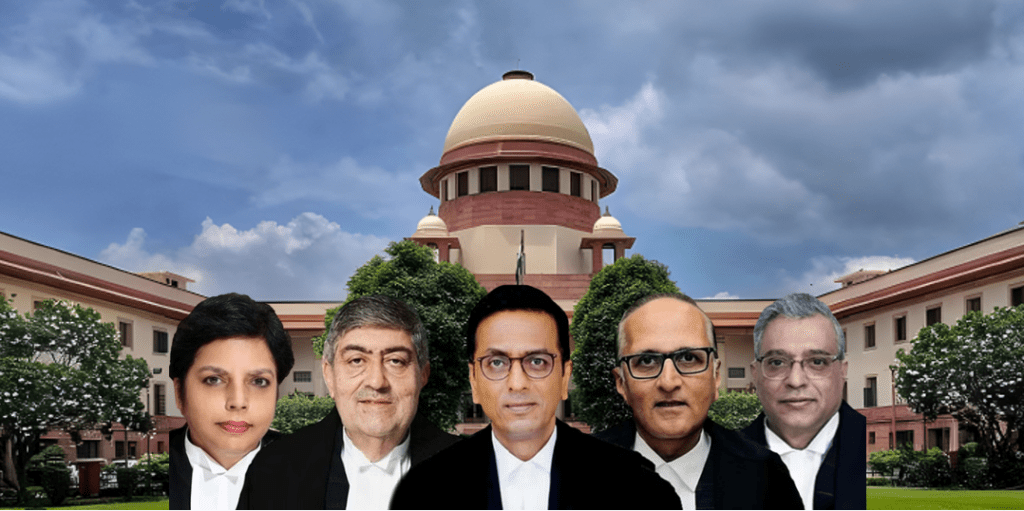
Keywords: same sex marriage, supreme court, agender
India’s Advocate General Tushar Mehta said in the Supreme Court on Wednesday, how gender is fluid and takes a range of forms that it would be difficult to accommodate in law. He gave his observations before the Constitution bench of the Indian Supreme Court, which was headed by Justice DK Chandrachud along with Judges Sanjay Kaul, Ravindra Bhat, Hima Kohli and P S Narasimha. The bench is hearing a batch of petitions to legalize same-sex marriages.
Reported by Bar and Bench, SG Mehta said, “A person who does not identify with any gender is called agender, genderless, and there are people who change gender as per surroundings… Then there is gender change as per mood swings… there is amicagender where gender changes as per friends they have, anogender where gender identity fades in and out with intensity and comes back with another gender identity,”[1]. Its facts without value judgments, he said. If they are granted marriage status by a court, will it be appropriate to issue regulations? It’s impossible to imagine that at all.
He went on to say, ‘There are 101 unforeseen situations out there. The class your lordship’s dealing in, you has no idea. It’s got its problems, too. And whether it’s a matter of law or policy is that up to the court? He went on to say, ‘There are 101 unforeseen situations out there. The class your lordship’s dealing in, you has no idea. It’s got its problems, too. And whether it’s a matter of law or policy is that up to the court?
It is only days after Chief Justice of the Supreme Court, C.J. Chandrachud, commented on that case at a hearing that gender is not limited to genitals and the notion of “biological man and biological woman is not absolute”[2].
In order to show that the Constitution’s authors were aware of homosexuality and chose not to include it in the law, Mehta also cited the debates of the Constituent Assembly during the adoption of the Special Marriage Law. “The Parliament was aware of gays and lesbians even at the time of the introduction of Hindu code bills and special marriage act,”[3] He replies to the arguments of advocate Mukul Rohatgi.
Written by- Aditya a student of ILSR, GLA University, Mathura, 2nd Semester, an intern under Legal Vidhiya
India’s Advocate General Tushar Mehta said in the Supreme Court on Wednesday, how gender is fluid and takes a range of forms that it would be difficult to accommodate in law. He gave his observations before the Constitution bench of the Indian Supreme Court, which was headed by Justice DK Chandrachud along with Judges Sanjay Kaul, Ravindra Bhat, Hima Kohli and P S Narasimha. The bench is hearing a batch of petitions to legalize same-sex marriages.
Reported by Bar and Bench, SG Mehta said, “A person who does not identify with any gender is called agender, genderless, and there are people who change gender as per surroundings… Then there is gender change as per mood swings… there is amicagender where gender changes as per friends they have, anogender where gender identity fades in and out with intensity and comes back with another gender identity,”[4]. Its facts without value judgments, he said. If they are granted marriage status by a court, will it be appropriate to issue regulations? It’s impossible to imagine that at all.
He went on to say, ‘There are 101 unforeseen situations out there. The class your lordship’s dealing in, you has no idea. It’s got its problems, too. And whether it’s a matter of law or policy is that up to the court? He went on to say, ‘There are 101 unforeseen situations out there. The class your lordship’s dealing in, you has no idea. It’s got its problems, too. And whether it’s a matter of law or policy is that up to the court?
It is only days after Chief Justice of the Supreme Court, C.J. Chandrachud, commented on that case at a hearing that gender is not limited to genitals and the notion of “biological man and biological woman is not absolute”[5].
In order to show that the Constitution’s authors were aware of homosexuality and chose not to include it in the law, Mehta also cited the debates of the Constituent Assembly during the adoption of the Special Marriage Law. “The Parliament was aware of gays and lesbians even at the time of the introduction of Hindu code bills and special marriage act,”[6] He replies to the arguments of advocate Mukul Rohatgi.
Written by- Aditya a student of ILSR, GLA University, Mathura, 2nd Semester, an intern under Legal Vidhiya





0 Comments